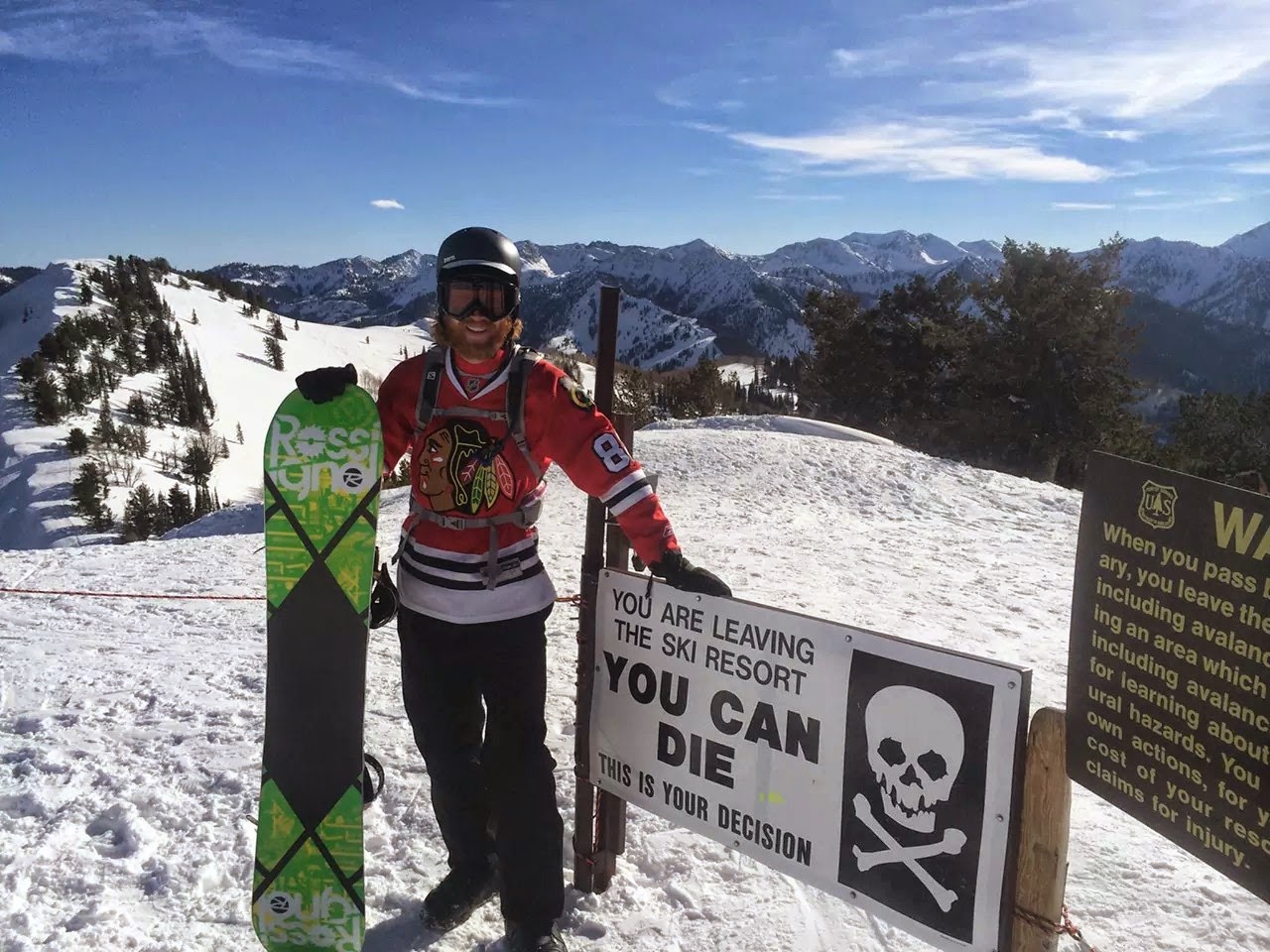I love reading the lists of others about what they've learned from illness, things others should take into consideration about others with illness, or things they wish they had known first. Fortunately, not everyone knows what it's like to live with a chronic illness. Not only do these lists help others better understand what we live with but they also help us by reminding us of our strength, our knowledge, and the forgotten lessons that have helped shape us and make us unique.
I think it goes without saying, again, that one lesson learned by any type of chronic illness is that we reach a whole new level of appreciation and cherish of the good times, the good days we have. So I'll move on to my lessons learned.
1. Chronic Illness Changes You
There's no way around it. The degree of change is affected by your age of diagnosis/symptoms onset, treatments and experiences you've had, support received and so forth. I'm not sure what I would be like if I didn't have FAP, I was diagnosed so young that I don't have a grasp of who I was before. There wasn't time for a clear change. But there are views I have now that I don't think I'd have without FAP and the accompanying experiences.
- I wouldn't be terrified of pain. With everything I do, I think about how to avoid or minimize risk of pain.
- I would take more risks in life.
- I would likely have been a veterinarian. This was my passion as a child, until I became sick. Ever since my first surgery, I can physically feel the pain of others just by others talking about their experiences, seeing painful events, imagining pain. I can't bait a hook without feeling the bait's pain of a hook going through its body.
- I would be more independent. I am extremely dependent on the emotional support of my parents and I found that same support with my husband.
- I would be more trusting. I don't trust medical providers easily due to experiences with my 1st surgeon and his residents. Providers have to prove to me first that they aren't trying to kill me and that my needs and fears are understood and respected before I feel comfortable.
- I may have been open to moving. I felt unable to leave my home state, my parents and my doctors due to my unstable health. I turned down opportunities to study abroad, marrying military sweethearts, out of state schools, careers that would have required relocation.
- I would travel without excessive worry, I love the thought of exploring the world yet my health needs cripple my adventurous spirit due to the demands on my body and the demands my body has.
- I would likely have engaged in the typical teenager behaviors and rebellion. My health, my ostomy, my fears of others finding out my secrets...it quite truly kept me out of trouble.
- I wouldn't struggle with depression or have a death orientation. Perhaps I wouldn't strongly support euthanasia. Maybe I wouldn't overly empathize with someone's wish for death, even suicide.
- I wouldn't be morbid. I actually take great pride in my morbidity. I love the perplexed, startled reactions by nonsickies and the camaraderie of morbid thoughts and humor shared with other sickies.
- I may not have anger problems. I've lived with true hate, resentment, and anger stemming from the incompetence of the surgeon and residents that led to life threatening, life altering complications.
2. Extreme Polarization of Life and Risk Taking Behaviors
We all cope differently, especially when presented with trauma and life changing events. The way we cope I've found falls into one of two categories. Either the person flirts with death to the point of recklessness, taking every challenge or risk available in order to live life to the fullest and get the most out of life. Or the person becomes paralyzed with fear and the need for safety, rarely taking risks, calculating every move out to the last detail in order to minimize risk. I definitely fall into the second category. I'm paralyzed with the fear of any type of pain. The risk of physical or emotional pain is almost unbearable for me. There are a lot of things I'd like to do or to try but I won't because the risk far exceeds the activity for me.
3. Redefining What's Trivial
Have you ever listened to a relatively healthy person complain about something and all you can do is chuckle to yourself? Not to be rude but I have.
When others complain about having to take medications, I can't help but chuckle. I've been responsible for taking my own medications and carrying them with me everywhere since I was 10. I have taken extremely small and extremely large pills with several doses a day. I'm such a great pill taker that I typically take all of my pills in one gulp.
I thought my professors overreacted when I would notify them that I'd be in class that day but I had to be hospitalized after and I wasn't sure when I'd return to class again. Each time they asked why I needed to be hospitalized and why I didn't go right away, I truthfully answered that I was bleeding internally again. They would urge me to skip class that day but I didn't budge. Waiting 1-2 hours wasn't going to make a difference, I might as well get that class over with, get my homework and get packed and cleaned up for the hospital so I'd be more comfortable and less stressed about school.
A friend of mine became accustomed to his stoma prolapsing and it wasn't unusual for blood to fill the front of his clothing. He didn't understand the horrified looks of strangers noticing his bloody clothes.
Such things are routine for us, they're our new norms. I'm sorry that our norms confuse and shock you and I'm sorry that your confusion and shock makes us giggle.
4. Living Your Life Impresses Others
Every time someone finds out a bit about what I've survived and what I live through daily, I'm given some type of congratulatory, awe inspired response. And I never fully understand it. Don't get me wrong, those with chronic illness survive some really rough cards in life and that is a thing to be celebrated. I am by no means poo pooing what someone lives through. But I don't see myself as doing anything special, I'm just living my life the best way I can just like everyone else. Because I'm just living my life, although I appreciate it, I often feel embarrassed when someone pays me complimentary, congratulatory, awe inspired words. I don't feel like I deserve it really because I don't see myself as a strong person or anyone special just for living with FAP and the complications it has caused, that's just my life.
5. You Lie Everyday
The whole "
but you don't look sick" deal, it comes about even more because we're master deceivers now after living with chronic illness. How often do you answer with an "I'm okay" or "I'm fine" when asked how you're doing but you're really thinking "I want to die right now, my stomach hurts, I don't have any energy, it hurts to walk, and I'm about to break into tears at any moment" but you don't really want to spill all that for various
reasons. Only those who really know us or are perceptive to others realize when we're really not okay in spite of our protests. I do this everyday just about. My family has gotten really good at picking up when I'm lying about how I feel. They know if I'm not really talking, I'm not smiling and laughing, I'm just sitting there taking up space and I'm curled up in a chair, hand on my stomach...I don't feel well at all and I really just want to curl up in a ball even though I'm answering "I'm okay".
6. Your Body is Your Enemy
Your body isn't your friend, your body betrays you at every turn possible. Your body often hates food and only wants to sleep. It doesn't like you having fun, participating in activities, or doing what you want. It fights you and sometimes you pay for going against what it wants.
The "
Keep your friends close but your enemies closer" rings true with your body. We know our bodies better than anyone, we are forced to learn what our triggers are and to anticipate the body's reactions to what we do. With a rare disease such as FAP, it isn't uncommon for the patient to know more about FAP than the doctors because not many are very familiar with FAP.
7. Spontaneity is Rare
There's so much to take into
consideration with everything we do it becomes hard to do anything spur of the moment. For me to participate in activities, I have to plan out when and what I'm going to
eat. I have to take into consideration where
restrooms are located and if they're not available, what is my back up plan. Even intimacy often requires forethought, talk about a mood killer. And even when you've taken every precaution you can in order to participate in an activity and you think it's all working out, it's not and you have to change the plans at the last second.
8. Proof of Illness is a Real Pressure
Chronic illness isn't always visible and symptoms can change in an instant and can change back again in another instant. The roller coaster ride of the illness leaves us feeling like we must prove our illness to others. I worry that my friends think I'm just ditching them, my
boss thinks I'm lazy or I just want an early day or weekend, or doctors will think I'm seeking attention or medications. I want to be taken serious and I do my very best in everything I do but sometimes my best isn't a lot. I worry that I'll be fired or doctors will turn me away.
9. You Will Be Discriminated Against for Life
At no fault of your own, you will be discriminated against throughout your life from now on. It may not happen on a regular basis but it
will happen. It may not be a large act of discrimination either. Your needs and your health will be dismissed. I've had hateful notes left on my car for using my handicap placard. A friend of mine has been denied assistance with boarding a plane even though he requires a walking cane. I remember an ostomate was banned from a hotel for his ostomy leaking onto the bed sheets during his sleep even though he voluntarily paid for new bed sheets. Doctors dismiss sometimes, writing us off as attention seeking, medication seeking. My primary care doctor, first surgeon and his residents, and the ER staff at my local Children's hospital all dismissed my health and my needs and it nearly cost my life.
10. Health Will Never Be Taken for Granted Again
You not only gain a brand new, deep appreciation for good health and good days but you also gain a deep anger and concern for others when they ignore their health. We all know someone who refuses to see a doctor in spite of complaints of an ailment. My husband would complain of various ailments but never would go to a doctor, he always had an excuse and he was healthy until he developed
Type I diabetes and landed in the ER after a blood sugar of almost 1000. He was lucky he didn't die. Within the medical field, I encounter countless individuals who have not managed their diabetes or high blood pressure resulting in kidney failure. It's one thing to know the risks of foregoing medical care and it's another to refuse care with the thoughts that you're invincible. When others complain of serious, ongoing ailments yet refuse to consult a doctor, I am filled with a sense of anger and desire to shake the person. As a sickie, we know that not every symptom can be shrugged off and symptoms can quickly turn serious and deadly. It's best to take care of a health issue now before it turns into a larger issue later. Save yourself pain, hassles, and higher costs.
We learn countless things, big and small, everyday with chronic illness. Sometimes it takes us longer to learn and accept lessons. Life is a journey and chronic illness is a forever changing teacher. The more willing you are to learn, the better you will adapt to this journey.
What are some of the lessons you've learned courtesy of your chronic illness?
















